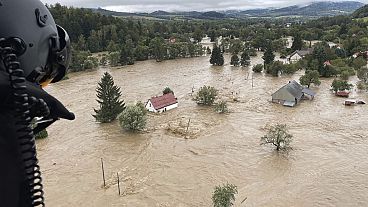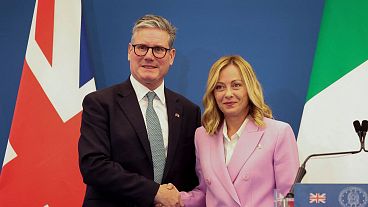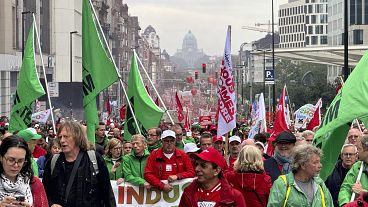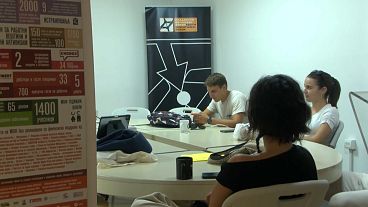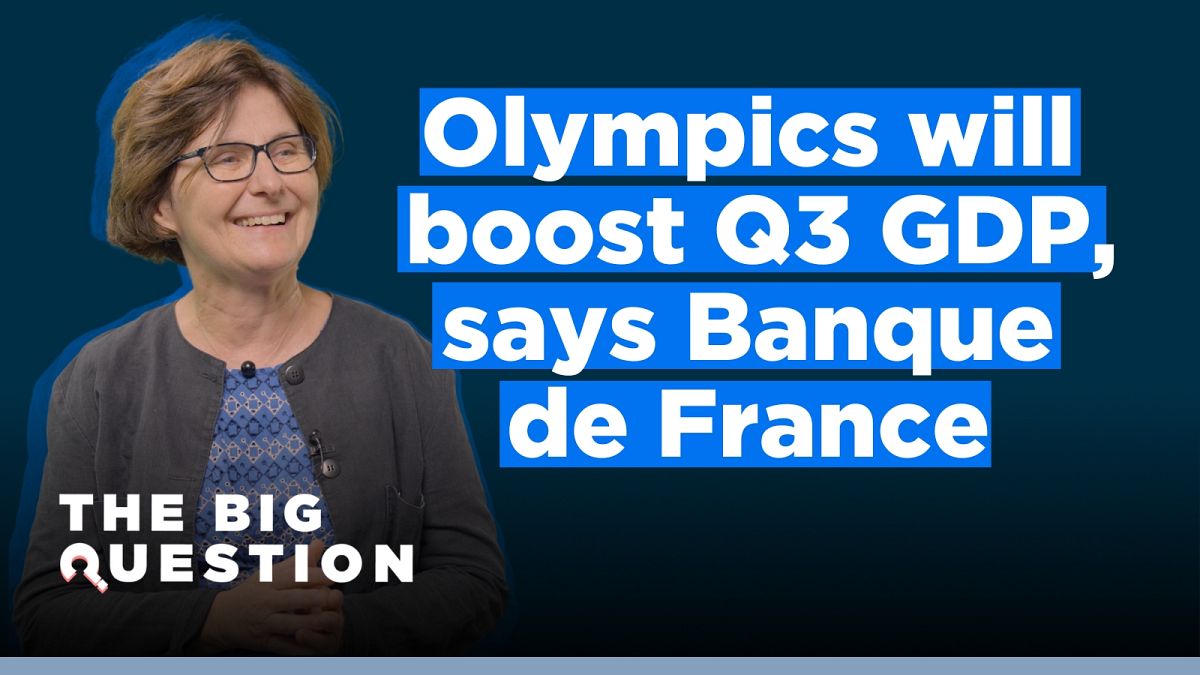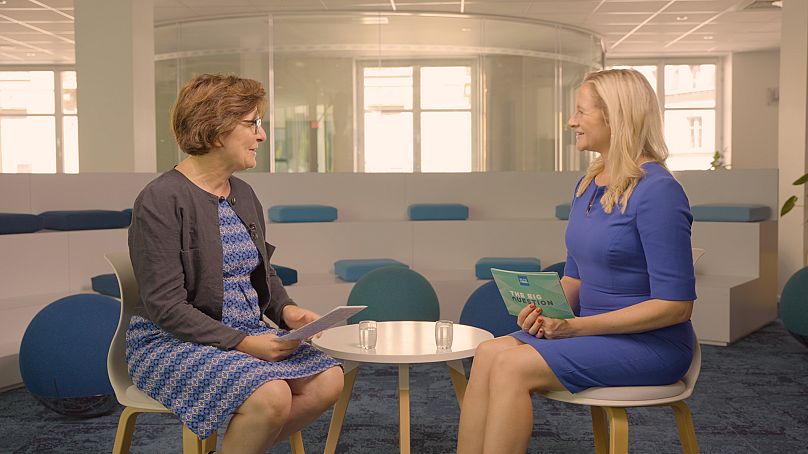France spent €2bn on the Olympics - has the country benefited economically? Banque de France deputy governor, Agnès Bénassy-Quéré considers France’s current economic outlook.
2024 has been quite the year for France with a snap election and the hosting of the Olympic Games in Paris. And if we’re talking about economic impact, let’s add the six shows Taylor Swift did in the French cities of Paris and Lyon on her Eras tour.
The Olympics is thought to have cost around €9bn to host, though only around €2bn came from the national purse.
Will the country reap economic benefits long and short term from their investment or was it just money well spent for two weeks of the year’s best viewing?
In this episode of The Big Question, Angela Barnes is joined by Agnès Bénassy-Quéré, deputy governor of the Banque de France and former chief economist for the French Treasury to discuss the country’s current economic outlook.
What is the economic impact of the Olympic games?
Many people in the tourism industry expected Parisian tourist attractions to be bursting at the seams this summer. In fact, although Paris was certainly full of life, tourist attractions were quieter than normal as people who would usually visit the city in the summer chose alternative destinations due to fears of over-priced accommodation and difficulty travelling around the city.
There are some schools of thought, however, that suggest that, long-term, the Olympics could act as a showcase for the city and may increase first-time visitors to the city and country during the next few years.
Some industries have seen a boost.
“We survey[ed] about 8,000 companies in France. We estimate that the quarter on quarter [GDP] growth rates for the third quarter could be boosted by about a quarter of a percentage point (0.25%),” Agnès explained.
“It concerns hotels, restaurants, transportation, security, but also broadcasting and of course, the sales of tickets. So this is a short term effect. It's a one off, so only for one quarter. And then we are back to the normal growth rate.”
Why do GDP and inflation rates matter to citizens?
“National GDP is about €2,600bn,” Agnès explained.
To many of us, reading about a country’s GDP dropping 2% feels meaningless but it actually has a huge impact.
“For households, it's the root of their purchasing power. If GDP doesn't grow, then purchasing power cannot grow,” she added.
To put this in further perspective, according to the Banque de France, each percentage point of GDP is worth €26 billion to France.
Furthermore, each inflation point not offset by an equivalent rise in wages reduces the purchasing power of household gross disposable income by €16bn.
Despite an extraordinary period of global unrest over the past few years, Agnès insists French purchasing power has not decreased. In fact, the unemployment rate has dropped to below pre-Covid levels and this has strengthened purchasing power.
“This is kind of a miracle, and people don't trust us,” Agnès stated.
What are the biggest challenges for the Banque de France going forward?
Agnès pointed to three key challenging areas for the Banque de France: disinflation, innovation and climate change.
“Climate change is really a challenge for central banks because on the one hand it's a source of shocks. Natural disasters are inflationary and transition climate policies are also a source of shocks to prices,” she explained.
While it’s undeniable that governments need to take big steps to tackle climate change, Agnès warned of two economic impacts, if not handled carefully.
“One could be inflationary with the carbon tax, and the other one is the depletion of public finance, which shifts the burden of stabilisation to central banks.”
The Big Questionis a series from Euronews Business where we sit down with industry leaders and experts to discuss some of the most important topics on today’s agenda.
Watch the video above for the full conversation with the Banque de France.

